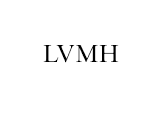LVMH Moet Hennessy Louis Vuitton SE

Estimated electricity consumption
N/A
Countries of production presence
N/A
LVMH, or Louis Vuitton Moët Hennessy, is a French multinational corporation that specializes in luxury goods, including bags, leather goods, and accessories. The company was founded in 1987 through the merger of Louis Vuitton and Moët Hennessy, and has since grown to become one of the largest luxury goods conglomerates in the world.
In recent years, LVMH has made significant strides towards decarbonisation and reducing its carbon footprint. The company has set ambitious sustainability targets, including a goal to reduce its greenhouse gas emissions by 25% by 2020. To achieve this, LVMH has implemented a number of initiatives, including investing in renewable energy and implementing energy efficiency measures across its operations.
One of the key ways that LVMH is working towards decarbonisation is through the use of corporate power purchase agreements (PPAs). These agreements allow companies to purchase renewable energy directly from energy producers, often at a lower cost than traditional energy sources. By investing in corporate PPAs, LVMH is able to reduce its reliance on fossil fuels and support the growth of renewable energy.
In 2019, LVMH signed a major corporate PPA with a wind farm in Spain, which will provide the company with renewable energy for its operations in the country. The PPA will also help to reduce LVMH's carbon footprint, as the wind farm will generate clean energy that would otherwise have been produced by fossil fuels.
LVMH is also investing in its own renewable energy projects, including solar panels and wind turbines. The company has installed over 5,000 solar panels at its production sites in France, which generate enough energy to power the equivalent of 800 homes. LVMH has also installed wind turbines at its production site in Scotland, which generate enough energy to power the equivalent of 1,000 homes.
In addition to investing in renewable energy, LVMH is also implementing energy efficiency measures across its operations. The company has set a target to reduce its energy consumption by 10% by 2020, and has implemented a number of initiatives to achieve this goal. These include upgrading lighting systems, optimizing heating and cooling systems, and implementing energy management systems across its facilities.
LVMH's commitment to decarbonisation and renewable energy is not only good for the environment, but also makes good business sense. By reducing its reliance on fossil fuels and investing in renewable energy, the company is able to reduce its energy costs and improve its bottom line. In addition, LVMH's sustainability initiatives are increasingly important to consumers, who are becoming more aware of the environmental impact of the products they purchase.
Overall, LVMH is a company that is committed to sustainability and decarbonisation. Through its investments in renewable energy, corporate PPAs, and energy efficiency measures, the company is working to reduce its carbon footprint and support the growth of clean energy. As a leader in the luxury goods sector, LVMH's commitment to sustainability is setting an example for other companies to follow.